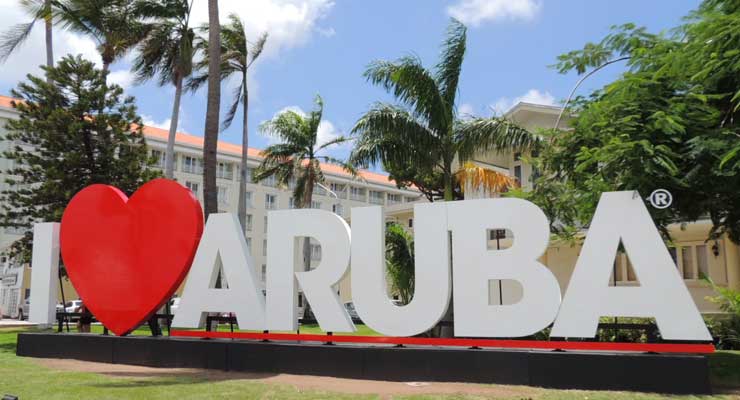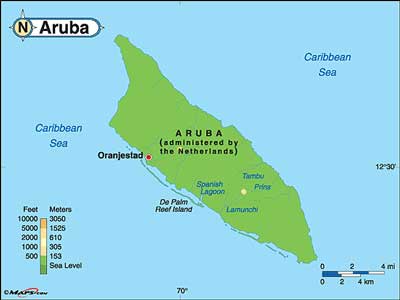
Aruba is an island nation without freshwater or native fossil fuels. It has a population of slightly over 100,000 and more than 1 million tourist visitors every year who come for the sun, Caribbean waters, and exceptional white sand beaches. They expect potable water and electricity, amenities that most of us take completely for granted.
This attention from tourists from around the world has required the small island member of the Netherlands group to develop creative ways to face its lack of water and standard sources of energy. In doing so it now finds itself with the opportunity to set an example for the entire world.
My time there was extremely full, exciting, and inspirational. I met with the Prime Minister, the Governor (who represents the King of the Netherlands) and members of the cabinet, administrative staff members in various offices of government, bankers, investment bankers, faculty, students and administrators at the University of Aruba, gave a couple of major speeches and was interviewed by the media. I found the people of Aruba to be exceedingly intelligent, openhearted, and willing to listen to ideas that might frighten those in countries like my own, the United States.
 I spent an afternoon with the managers and workers being shown around a state of the art reverse osmosis water purification plant that is five times more fuel-efficient than the previous one which, when it was built, was also state of the art. I sat in the control room of the nation’s electricity producing company and saw that 30% of the capacity was being produced by wind machines, which is impressive.
I spent an afternoon with the managers and workers being shown around a state of the art reverse osmosis water purification plant that is five times more fuel-efficient than the previous one which, when it was built, was also state of the art. I sat in the control room of the nation’s electricity producing company and saw that 30% of the capacity was being produced by wind machines, which is impressive.
During meetings with the various people mentioned above, we discussed the way Aruba can take these innovative approaches for water purification and energy production to new levels. This country has the opportunity to send its experts out to the world and help others deal with the incredible challenges that face the entire planet.
Turn on any faucet in Aruba and out flows the Champagne of water, the purest best-tasting water I’ve ever had. I tell the Arubans that they need to take their expertise to Miami, New York, Chicago, LA, Paris, London, and just about every other major city where the water insults the taste buds. In addition to taste, of course there is a huge need throughout countries like China and India and those in Latin America and Africa where there are horrible droughts, unhealthy water sources, and the collapsing glaciers are causing major rivers to dry up.
A Dream for Aruba
One night I presented a speech to the people of this country, and in that speech I described a dream I have for Aruba:
The streets, parking lots and rooftops are painted white which saves a great deal of energy, as compared to ones that are black. The cars are electric. The water purification plant and electric facilities include beautiful parks for children (as well as adults) who come to play and learn about the technologies involved – a sort of modern, practical version of Epcot. Aruba’s experts are traveling the world to help others solve the problems associated with declining water and fossil fuel resources – fuels that are also destroying our atmosphere.
This is a dream that can become reality quickly. It only requires a mindset from people who are already open-minded and receptive to innovative approaches to solving their problems. I take great hope in what I see in Aruba. I have witnessed similar innovative approaches to solving a variety of problems in many other smaller countries – Iceland, Ecuador, Panama, Romania, and Croatia, to name a few.
The big countries, like the United States, Russia, China, and the European Union nations have failed us. Their approach to global economics has resulted in disaster for most of the world. It is time for change! It is time to move from the Death to a Life Economy, as I’ve said so many times in my writings and speeches.
Aruba is an example of a country that is taking a leadership role down the path of the Life Economy. My hat is off to the people of Aruba.
Leave a Reply